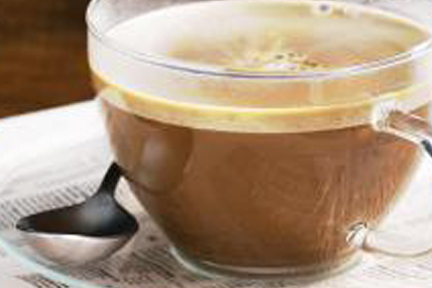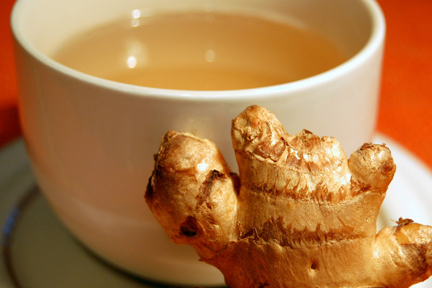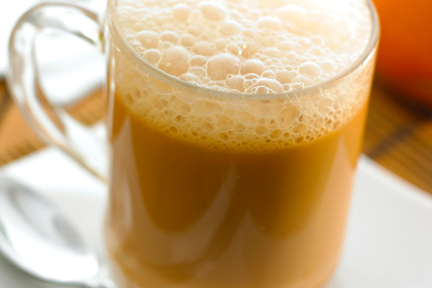Coffee (Kopi)

At kopi tiams (Chinese: 咖啡店; pinyin: kā fēi diàn; literally: "coffee shop"), coffee and tea are usually ordered using a specific vernacular featuring terms from different languages. "Kopi" (coffee) and "teh" (tea) can be tailored to suit the drinker's taste by using the following suffixes when ordering:
- "Peng" (Chinese: 冰; pinyin: bīng; Pe̍h-ōe-jī: peng; literally: "ice"): with ice
- "C": with evaporated milk
- "Siew dai": less sugar
- "O": black, no milk
- "O Kosong" ("Kosong"="Nothing"): black, no sugar
- "kao": extra thick
- "Poh": extra thin
- "Milo": chocolate milk drink
Ginger tea, Teh halia

Ginger tea is an Asian herbal-beverage that was made from ginger root. It has a long history been used as an herbal medicines in East Asia, South Asia, Southeast Asia and the Middle East.
Ginger tea is usually used to prevent colds and to aid digestion, stomach upset, diarrhea, and nausea, and also as a home remedy for cough and sore throats. Ginger tea was also purported to aid blood circulation.
Teh tarik

Teh tarik (literally "pulled tea") is a hot milk tea beverage which can be commonly found in restaurants, outdoor stalls and kopi tiams within the Southeast Asian countries of Malaysia and Singapore. Its name is derived from the pouring process of "pulling" the drink during preparation. It is made from black tea, condensed milk and/or evaporated milk. It is considered the national drink of Malaysia.
Some of the more common foods that can be seen in kopi tiams, besides the ever-popular eggs and toast, consist of char kway tiao (fried hor fun, sometimes cooked with eggs and cockles), Hokkien mee (mee noodles served with various seafoods as well as egg) and, possibly the most common, nasi lemak, or coconut rice (a Malay dish of coconut-flavoured rice, served with sambal chilli paste, egg, and ikan billis or anchovies).
(wikipedia)
(wikipedia)
